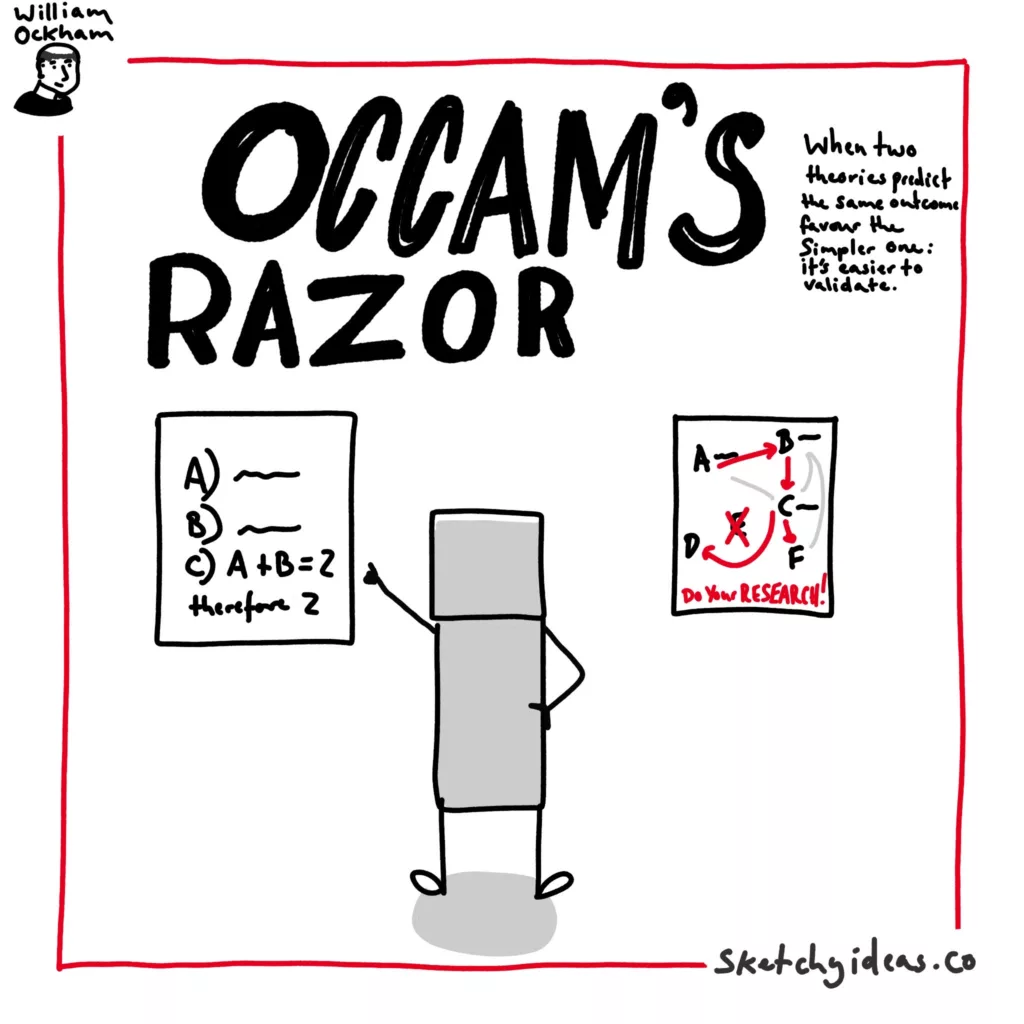Have you ever found yourself struggling to make a decision when faced with multiple options? It’s easy to get lost in the details and feel overwhelmed. This is where Occam’s Razor comes in, a mental model that helps simplify complex problems and choose the most likely solution.

What is Occam’s Razor?
At its core, Occam’s Razor is a principle that suggests that when faced with competing explanations for an event or occurrence, you should select the explanation that makes the fewest number of assumptions. This principle is often summarised as
“The simplest explanation is usually the correct one.”
A key point is that this isn’t universal. Sometimes a more complicated explanation IS the correct one, but the beauty of this razor (another name for a mental model) is that it helps us find out if that’s true.
(Bonus point: While researching I discovered this is sometimes known as the principle parsimony).
Why is Occam’s Razor important?
Occam’s Razor is important because it helps us find the right answer faster.
Simpler explanations (with fewer assumptions) are easier to check and validate than more complicated one. Occam’s Razor also encourages us to check our assumptions and biases that may be clouding our judgment.
Together, this makes it a great way to come to better conclusions faster.
How can you apply Occam’s Razor in your life?
There are several ways in which you can apply Occam’s Razor in your personal and professional life. Here are a few examples:
- When evaluating a new business opportunity, look for the simplest explanation of how the opportunity will generate revenue. Avoid overly complex business models that require numerous assumptions and variables.
- When troubleshooting a technical problem, start by looking for the simplest explanation of what might be causing the issue. Avoid jumping to complex solutions before ruling out simpler ones.
- When trying to understand a complex issue or topic, break it down into its simplest components. Look for the fewest number of assumptions needed to understand the issue.
Stop overcomplicating your thinking
It’s natural to overthink things.
Resisting this temptation and focusing on the simplest explanation with the fewest assumptions will help you find the right answer faster.

Leave a Reply